Food security prioritized in NK amid heavy rain: Unification Ministry
Ministry to cut 15% of workforce, abolish four key inter-Korean exchange units
By Ji Da-gyumPublished : Aug. 23, 2023 - 15:07
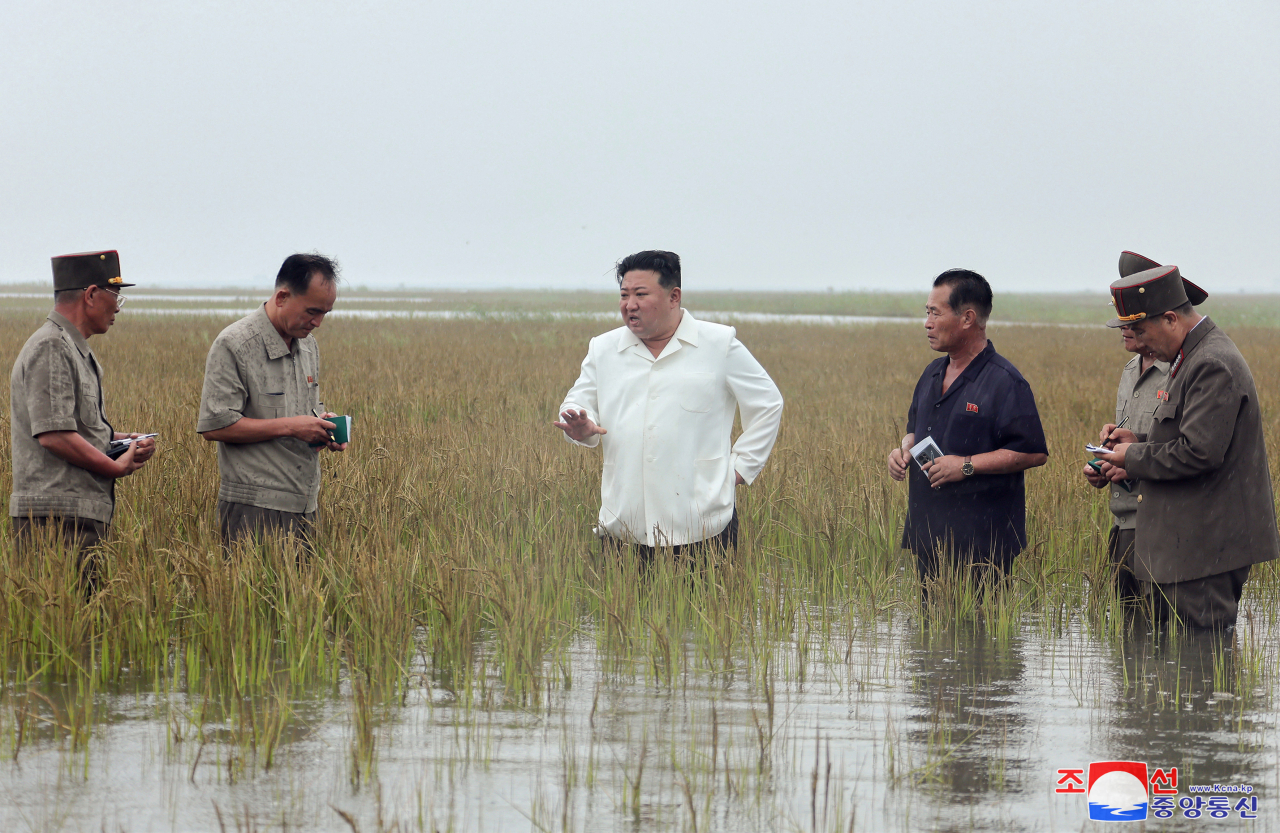
North Korea has been placing a high priority on stabilizing food security amid unfavorable weather conditions, while its trade with China has not fully recovered to pre-COVID-19 pandemic levels, South Korea's Unification Ministry said Wednesday.
"North Korea has fully mobilized resources and manpower for grain production which has been designated as the No. 1 task among 12 major economic priorities for this year," reads a report submitted by the ministry to the National Assembly.
But to that end, "North Korea has been encountering challenges in its preparations for natural disasters, including the ongoing typhoons and heavy rainfall."
As an example of such occurrences, the ministry pointed to an incident where North Korean leader Kim Jong-un criticized senior officials for irresponsible handling of flood damages leading to negative consequences to crop production.
In an unusual move during his on-site guidance Monday, the North Korean leader publicly criticized Kim Tok-hun, premier of his Cabinet, for inadequate management of tidelands used for rice production, state media reported Tuesday.
Kim Jong-un also personally conducted visits to areas and farms that were affected by the typhoon in Anbyon County in the North's Kangwon Province. During these visits, he emphasized the urgency of taking immediate measures to salvage essential crops, state media reported earlier this month.
The ministry also pointed out that North Korea's trade with China has rebounded to around 85 percent of pre-COVID-19 levels. However, there has been a recent deceleration in the expansion of bilateral trade volume, mainly due to the slowed growth of North Korea's subcontracted processing exports, encompassing items like wigs.
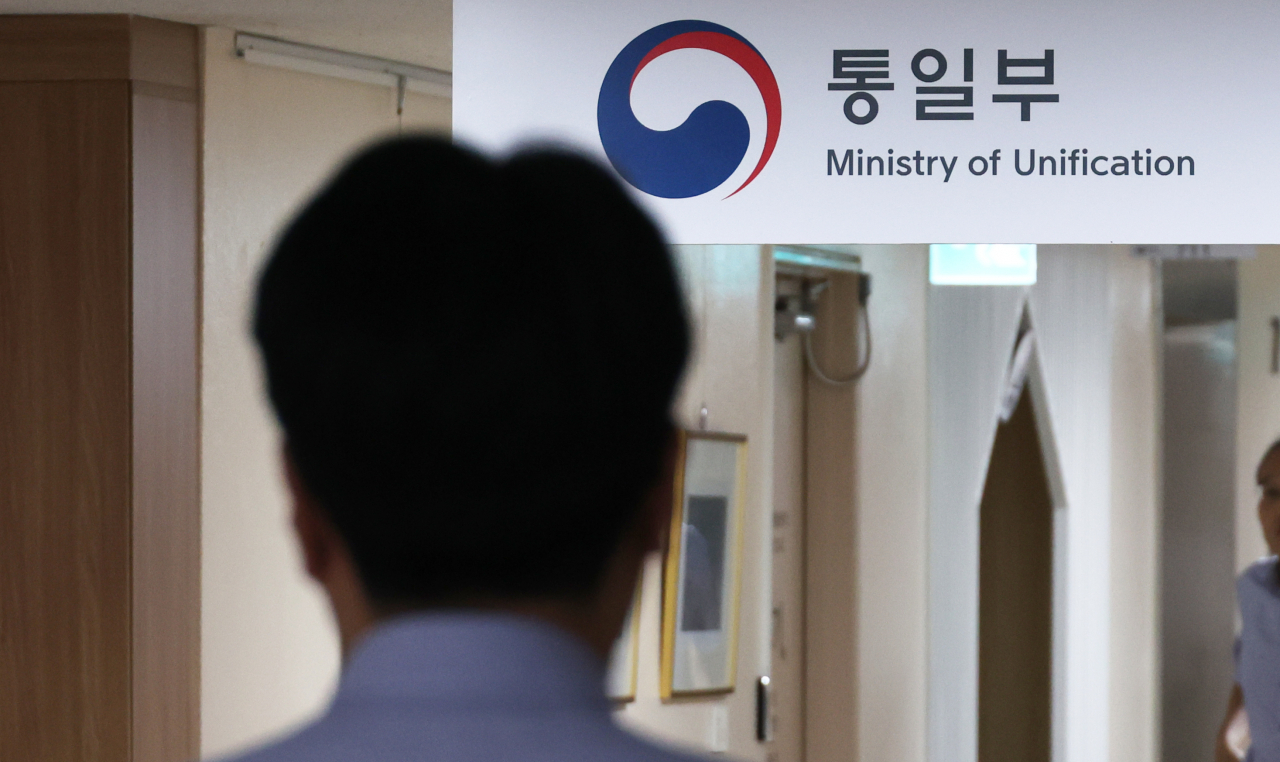
The Unification Ministry on Wednesday also unveiled restructuring plans involving considerable workforce reductions and the dissolution of four organizations responsible for inter-Korean dialogue and exchanges, amid an extended impasse with North Korea.
The ministry will reduce its existing workforce from 617 to 536 personnel, constituting an approximate 15 percent downsizing, according to the documented plan.
Out of the 81 positions being eliminated, all are of civil servants who are part of the headquarters and affiliated agencies.
However, the ministry refrained from providing details when questioned by The Korea Herald regarding the approach to managing the targeted workforce reduction. Instead, the ministry stated it is "currently reviewing various options in consultation with related organizations."
The ministry has additionally opted to pursue an "all-encompassing reorganization" of agencies responsible for inter-Korean exchange, cooperation, dialogue and transit.
The Inter-Korean Exchange and Cooperation Bureau and the Inter-Korean Cooperation District Policy Planning Directorate at the ministry's headquarters, as well as two affiliated agencies — the Office of Inter-Korean Dialogue and the Inter-Korean Transit Office — will be dissolved.
Their functions and roles are to be amalgamated within a new "single directorate." The directorate will center its efforts on "formulating inter-Korean dialogue strategies and enhancing systems for inter-Korean exchanges and discussions."
The Unification Ministry clarified that it aims to "restructure its functions and personnel to respond flexibly and efficiently to the ongoing inter-Korean situation marked by extended pauses in dialogue, exchange and cooperation between South and North Korea, along with the swiftly evolving landscape of unification policy."
But the ministry will further strengthen its ability to analyze the North Korean situation through the creation of a new division focused on enhancing information collaboration with pertinent domestic and international entities such as South Korea's National Intelligence Service, as well as private organizations.
Furthermore, a new team will be established with the exclusive purpose of heightening awareness about the unification of the Korean Peninsula on both domestic and international fronts, while also facilitating a more profound understanding of the realities of North Korea.
"Our initiative strives to cultivate a balanced perception of unification and North Korea by actively promoting an impartial understanding of North Korea's actual situation among both domestic and international audiences," the ministry said.
In line with the dynamics of North-South relations, a "message planning team" will also be established to "develop and oversee steadfast and coherent messages." This initiative aims to bolster the effectiveness of unification and North Korea policies.
The Unification Ministry will also institute a dedicated team to address matters related to individuals abducted by North Korean authorities, those detained in North Korea and prisoners of war, in light of the urgency and significance.
Under the direct supervision of new Unification Minister Kim Yung-ho, the team will spearhead projects aimed at "developing innovative solutions and nurturing a sense of understanding and empathy domestically and internationally" for the issue.
The implementation of the reorganization is projected to conclude early next month. The preliminary announcement of legislation for the proposed restructuring was issued Wednesday, to be followed by a vice ministers' meeting on Aug. 31 and a Cabinet meeting on Sept. 5 for the official approval, promulgation and implementation.
The final plan comes less than two months after President Yoon Suk Yeol advocated for a substantial overhaul of the ministry's core roles and functions. In early July, Yoon criticized the ministry for functioning akin to a department supporting North Korea by simultaneously replacing both the unification minister and vice unification minister.









![[Weekender] How DDP emerged as an icon of Seoul](http://res.heraldm.com/phpwas/restmb_idxmake.php?idx=644&simg=/content/image/2024/04/25/20240425050915_0.jpg&u=)

![[Today’s K-pop] NewJeans' single teasers release amid intrigue](http://res.heraldm.com/phpwas/restmb_idxmake.php?idx=644&simg=/content/image/2024/04/26/20240426050575_0.jpg&u=)


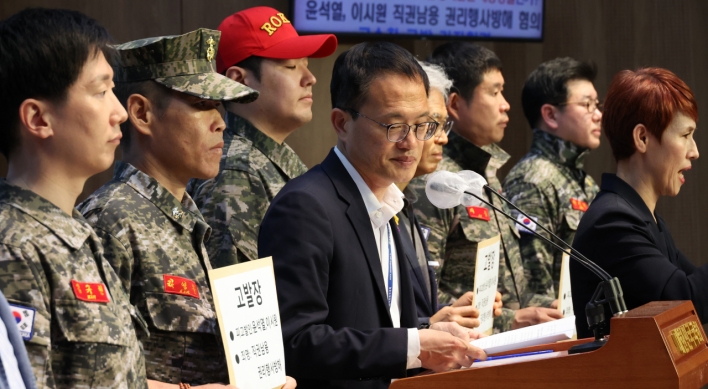
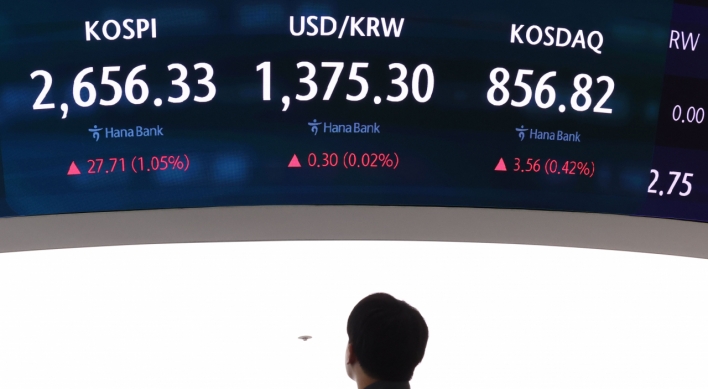
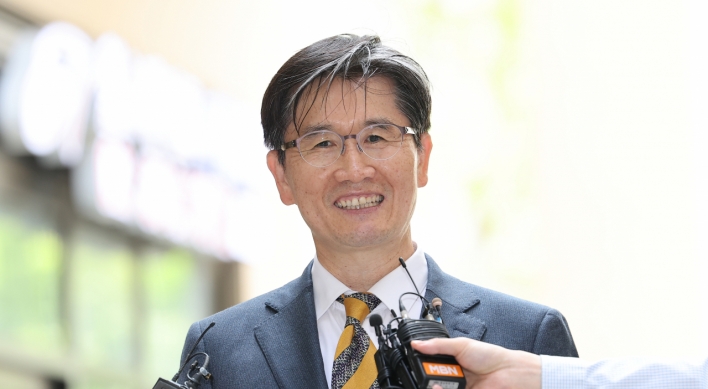

![[Herald Interview] Mistakes turn into blessings in street performance, director says](http://res.heraldm.com/phpwas/restmb_idxmake.php?idx=652&simg=/content/image/2024/04/28/20240428050150_0.jpg&u=)
